Find out whether zero search volume keywords are worth your attention, or whether they’re SEO dead ends.
Zero Search Volume Keywords: Hidden Gems or SEO Dead Ends?
Author: Paulina Piaskowska, Content Writer

A question that SEOs have asked for years, is whether it is worth the effort to target zero search volume keywords, or are they just dead ends in SEO strategy?
Despite their apparent lack of popularity, zero search volume keywords might hold untapped potential as hidden gems in your optimisation efforts. But before diving in, it’s crucial to understand when and why pursuing these keywords could be beneficial.
In this article, we add our own take on the debate: are zero-volume keywords worth your attention, and how can you pinpoint them effectively?
What Are Zero Search Volume Keywords?
Zero search volume keywords are highly specific long-tail queries which don’t receive many (or any) searches on Google.
In most cases, you can spot them using one of the SEO tools. These are the keywords for which tools cannot provide search history or queries with very low search volumes.
The high specificity of these keywords is their defining quality. And it makes sense. The more precise and narrow the query, the fewer people that search for it.
While a keyword like “red dress” has hundreds of thousands of searches, a query such as “long red dress for valentine’s day” has less than 10.
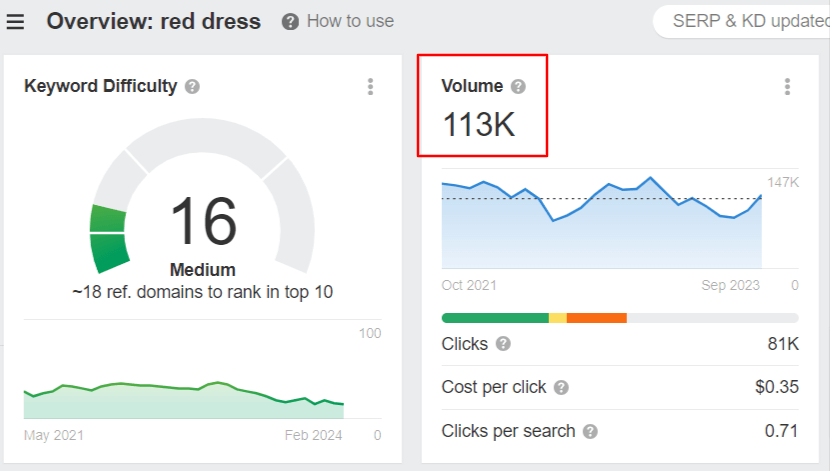
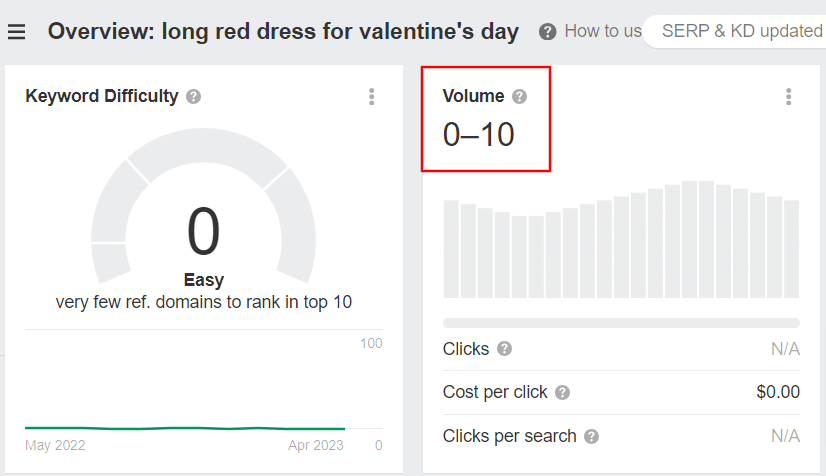
Such keywords can be broken into two main categories
- Keywords that are a less common way of phrasing a popular query
- Brand new queries
As with different types of keywords in general, the way you approach optimising for zero-volume keywords in both of these instances will vary depending on your website’s goals and limitations.
In some cases, targeting keywords that are variations of popular, high-search volume queries may look like a good idea since they seem far less competitive.
However, it’s important to know that Google is able to recognise when zero-volume keywords carry the same meaning as their more popular, broadly searched keyword equivalents. You can observe it by inputting both terms into Google and comparing the results.
Broader keyword: dog training tips
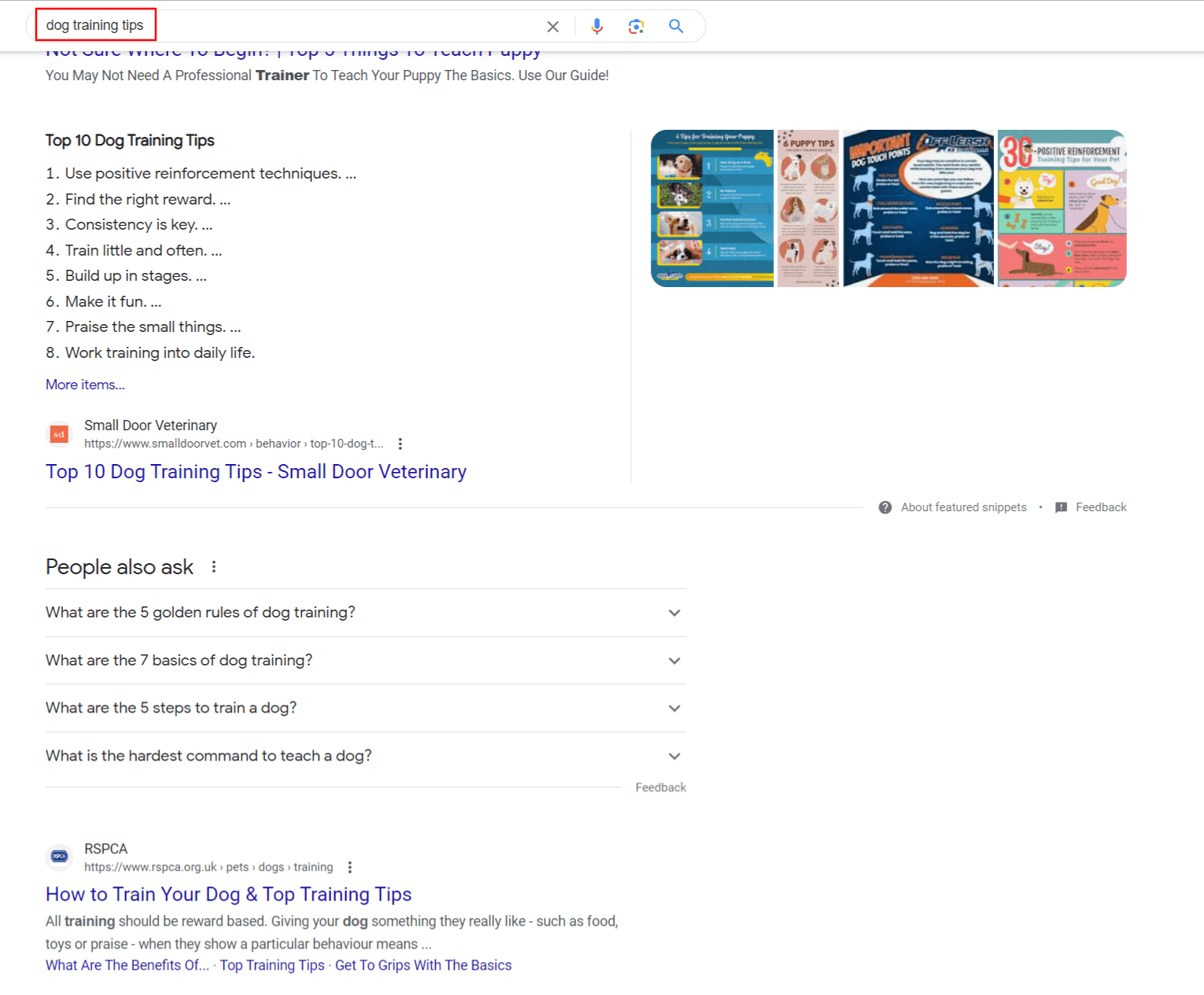
Keyword Variation: training a dog tips
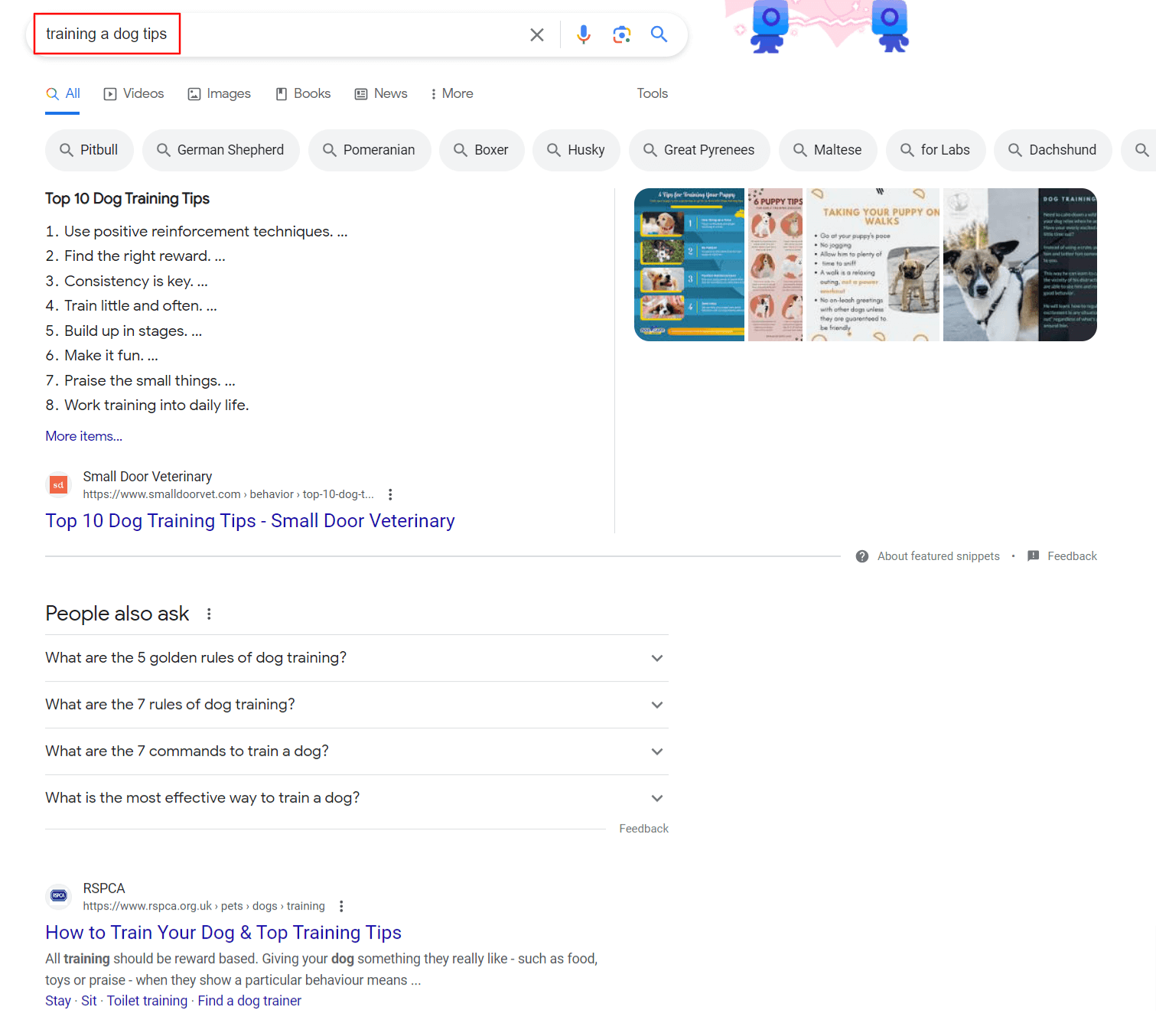
Targeting less common phrases is not any easier than going after the more popular searches. When you want to identify such keywords, pay attention to their Keyword Difficulty. A high KD score is one of the strongest indicators a low-volume keyword might be difficult to rank for.
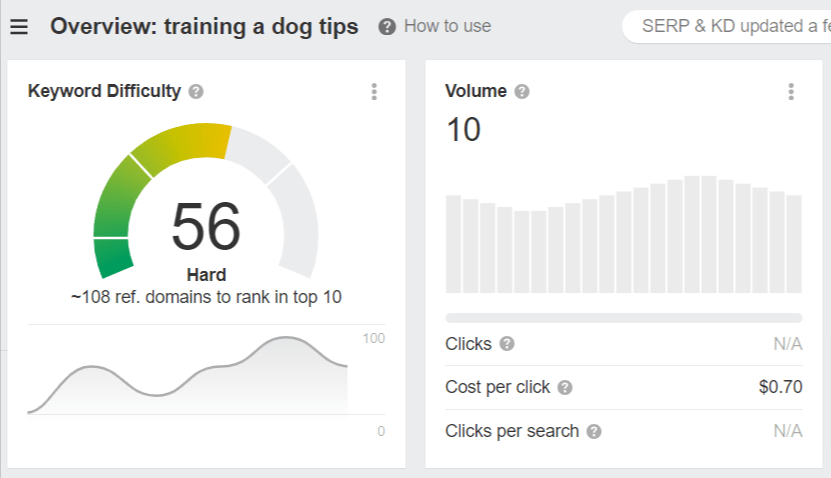
Why Should You Consider Targeting Them?
Some zero search volume keywords may not be suitable to include in your SEO strategy, but that doesn’t mean that they should be disregarded completely.
Here’s why:
Less Competitive
Your competitors see keywords with no searches and push them aside, thinking there’s no point in targeting them since there is no demand for them. That’s your chance to occupy search results for these queries in a much less competitive environment.
Well-written and optimised content with a value that includes a proper ratio of low-volume queries is what’s going to set you apart, leaving your competition in the dust.
Highly Specific
A key characteristic of zero volume keywords is that they are hyper-focused; they’re the means to find very specific pieces of information or products/services.
By offering your audience answers to these very narrow long-tail queries, you provide content they’re already looking for, but no one else is offering.
Your site might be the first to rank for these keywords, building your authority in the subject and generating more conversions.
They’re Likely Actually Getting Some Searches
It’s also worth mentioning that information we can access in various third-party SEO tools like Ahrefs or Semrush regarding low-volume keywords is not always 100% accurate.
Most tools provide estimates of potential traffic and search volumes. Ahrefs, for example, uses its own infrastructure to crawl and collect information about keywords, which means that their keyword search volume results are not synonymous with Google’s keywords search data.
Therefore, not all zero volume keywords actually have zero searches. Ignoring that fact can lead you to miss out on some valuable opportunities to rank for these queries.
Generate Traffic
According to Google, 15% of all searches have never been searched by anyone. Which brings us back to the second type of zero volume keywords – brand new keywords that constitute a considerable amount of all the searches made.
This is why targeting these keywords can be so valuable. This strategy can ensure you’re not missing out on a pool of untapped traffic potential.
How To Find Zero Search Volume Keywords
Now that we have established why (some) zero search volume keywords are worth the effort, let’s take a closer look at how you can find these hidden gems.
People Also Ask
One of the basic principles of keyword research is seeing what else your audience might be searching for. You can easily do that with the People Also Ask section of the SERP. This is an ideal place to find long-tail, very specific keywords you may want to consider in your SEO content plan.
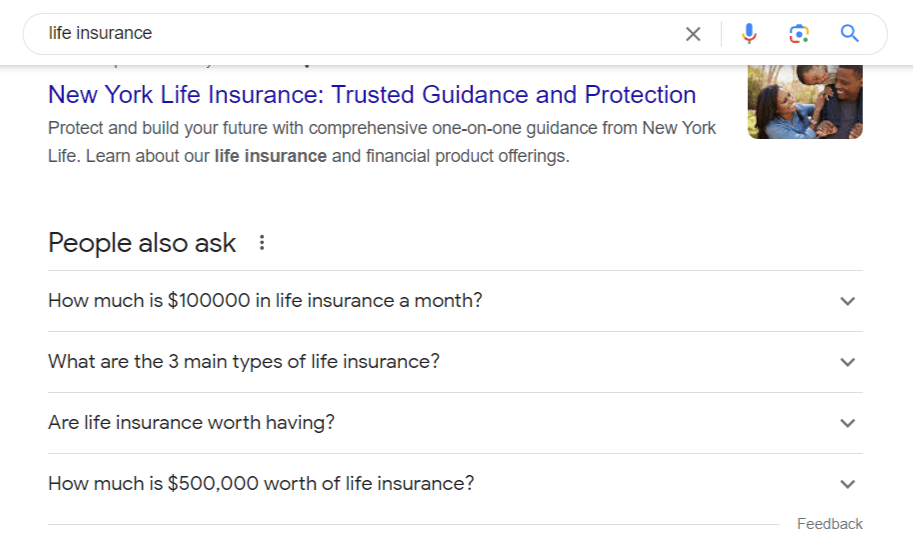
Related Searches
Similarly, you can gain inspiration for content ideas from the Related Searches feature in Google’s SERP. This is where you’re going to see queries related to your original query. This shows you other topics or content hub ideas that might be valuable to cover.

Google Autocomplete
Another strategy to find low-volume keywords is by utilising the Google Autocomplete function. This is how you can locate keywords closely related to your main long-tail keyword.

Ahrefs Keywords Explorer
Tools like Ahrefs make keyword research and clustering easy and more organised.
Ahrefs Keywords Explorer can help you find many potential zero and low-volume keywords to target.
- Search a seed keyword in the Keyword Explorer.
- Go to matching terms and filter by search volume for those that have less than 10 searches per month.
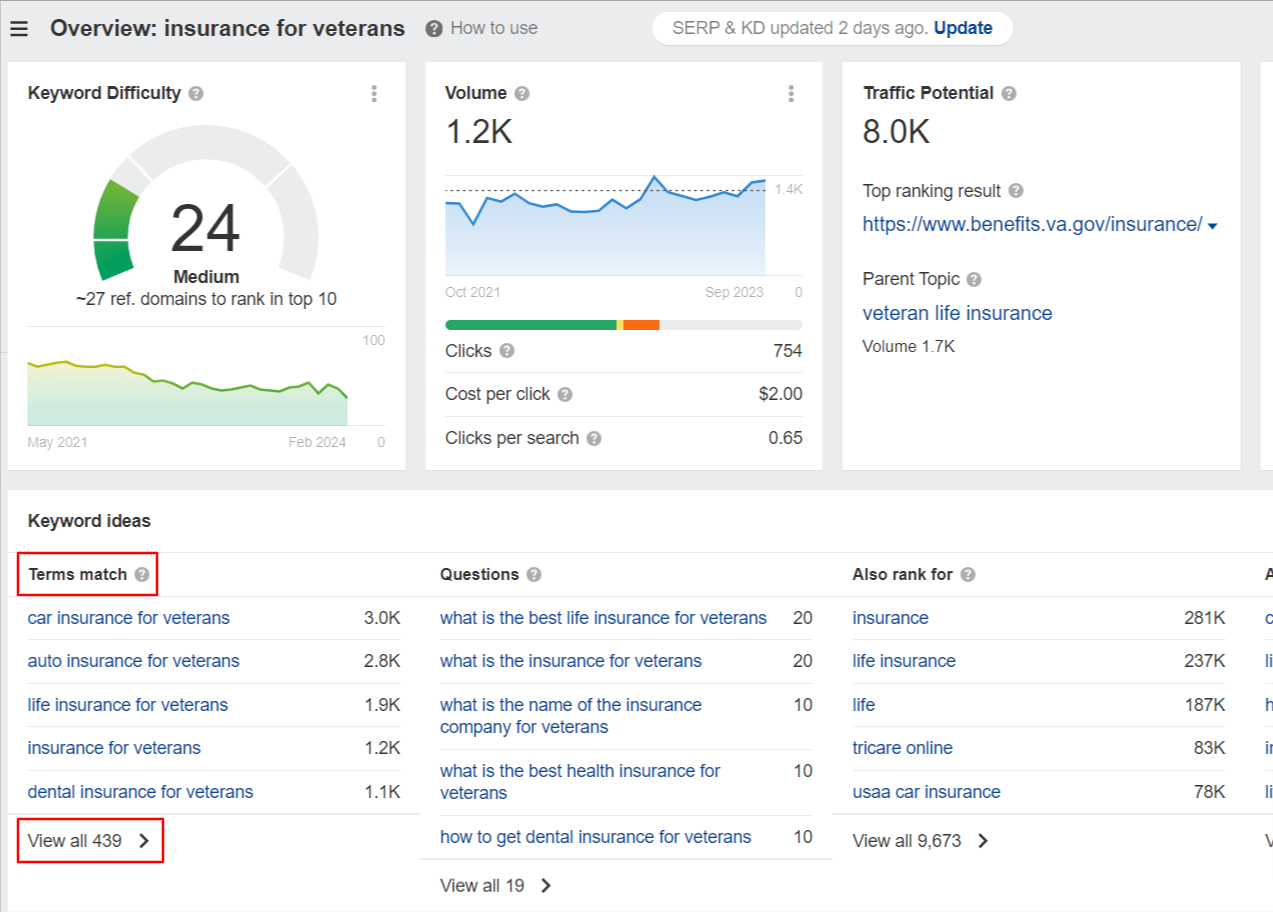
- Pick the ones that are relevant and aren’t just rephrased of other keywords.
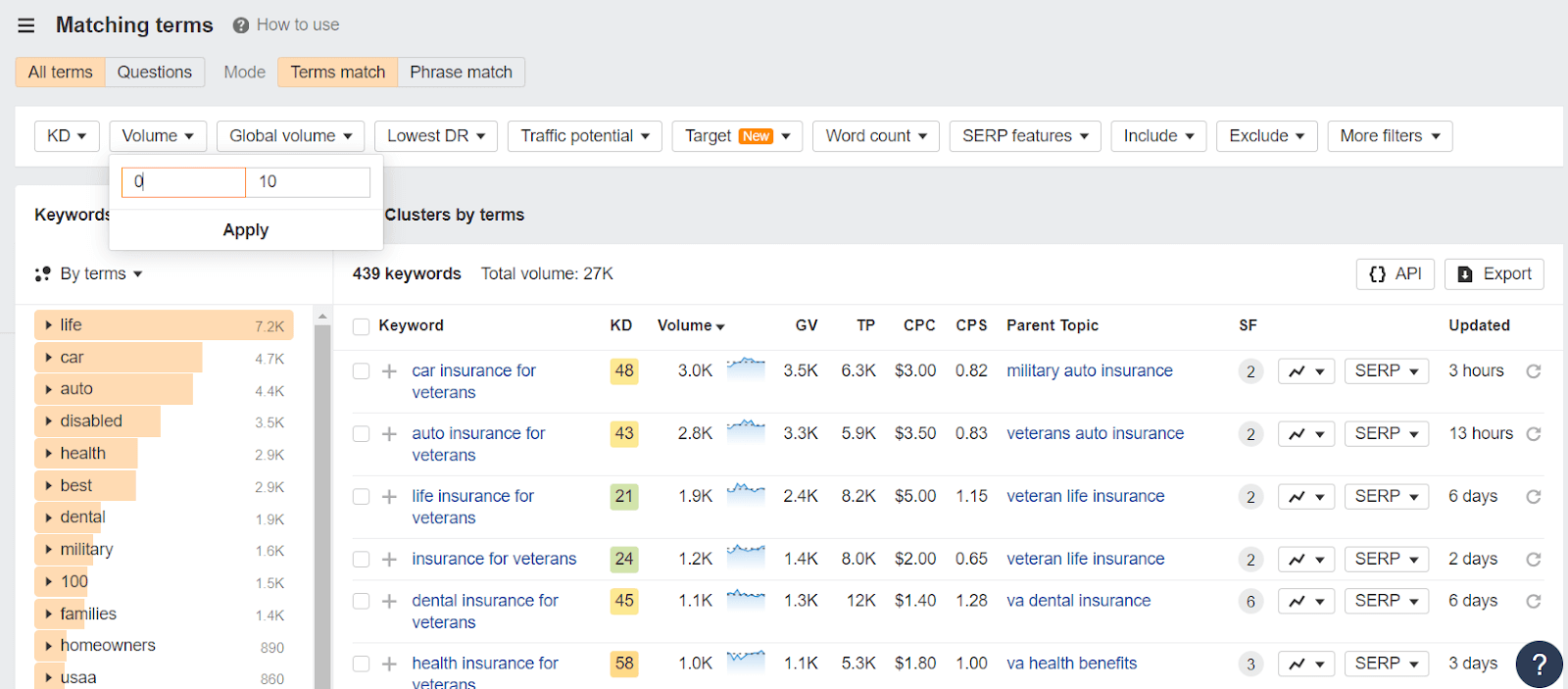
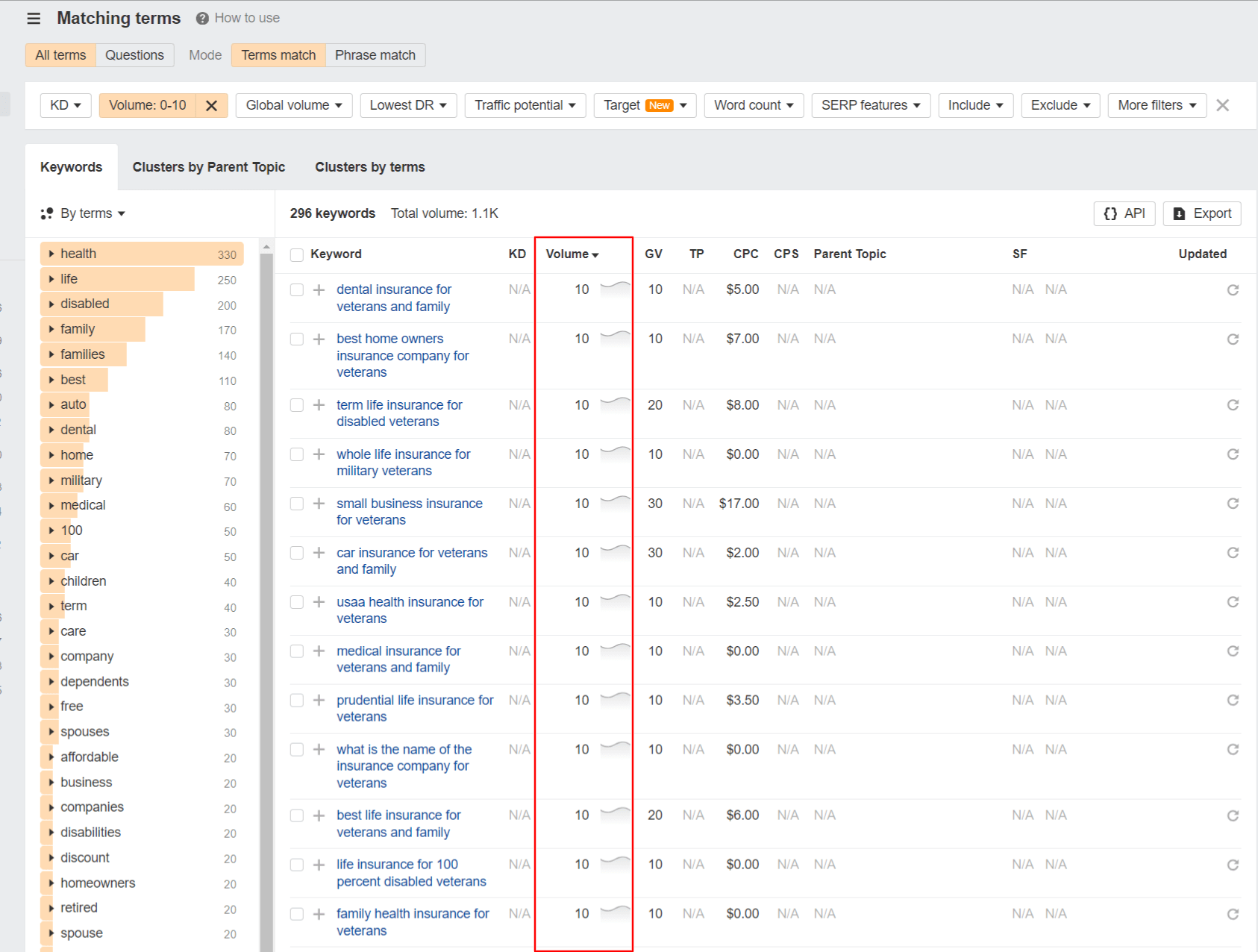
The Bottom Line
Low-volume keywords might not be the lowest-hanging fruit to target. But they can generate value for your SEO campaign efforts if you know how to utilise them well.
These queries are hyper-specific long-tail keywords with very low search volume, but that’s their hidden power. They can be a gateway to approach rarely targeted topics and offer value for your audience in a less competitive setting.
More articles
View more of our research.

Constructing An eCommerce Website for SEO
Find out how to construct an eCommerce website that is great for users and accessible for search engines.

Educating Clients on the Value of SEO: A Guide for Marketing Managers
Find out how marketing professionals can transform their clients' perception of SEO by educating them about the value that it can bring to their businesses.
